Google Pixel 10 Pro Fold vs Pixel 9 Pro Fold: Don't fall victim to the FOMO
The Pixel 10 Pro Fold is a marginal upgrade over the PIxel 9 Pro Fold, and it doesn't feel you should get the new phone.
We may earn a commission if you make a purchase from the links on this page.

Intro
The Pixel 10 Pro Fold is finally here, and just as we and the rumor mill expected, it's the most incremental upgrade over last year's Pixel 9 Pro Fold. That feels slightly disappointing given how Samsung truly elevated its foldables with the Galaxy Z Fold 7 in comparison with the Z Fold 6.
With the Pixel 10 Pro Fold, we get a slightly larger battery, a new chipset, IP68 water and dust resistance, a 1TB storage option, as well as cool new software features like Magic Cue and Camera Coach. However, it doesn't feel like any of this could drive upgrades from the previous generation, as the Pixel 9 Pro Fold is still largely the same phone, with very similar specs and overall value.
If you're already a proud owner of the Pixel 9 Pro Fold, you might be wondering if the newer Pixel 10 Pro Fold is worth upgrading to.
We've put both phones through the paces of our in-house tests for battery life, camera quality, display performance, and raw speed. Beyond the numbers, we also spent time living with these devices to see how they perform in real life. In the following article, we will help you choose whether to stick with the Pixel 9 Pro Fold or upgrade the Pixel 10 Pro Fold.
Here's how the Pixel 10 Pro Fold compares to the Pixel 9 Pro Fold.
Google Pixel 10 Pro Fold vs Google Pixel 9 Pro Fold differences:
| Pixel 10 Pro Fold | Pixel 9 Pro Fold |
|---|---|
| Design | |
| Thicker at 10.8 mm folded | Slightly thinner at 10.5 mm folded |
| A 6.4-inch cover and 8-inch internal screens | Smaller 6.3-inch cover screen, but same 8-inch internal one |
| IP68 water and dust resistance | IPX8 water and dust resistance |
| Display | |
| 3,000 nits of peak brightness | 2,700 nits of peak brightness |
| 6.4-inch external screen | 6.3-inch external screen |
| Camera | |
| Triple rear camera (48MP+10.5MP+10.8MP), dual 10MP selfie cameras | Triple camera (48MP+10.5MP+10.8MP), dual 10MP selfies |
| Performance | |
| Google Tensor G5 (3nm) with 16GB of RAM | Tensor G4 (4nm), 16GB RAM |
| 256GB, 512GB, and 1TB versions | Just 256GB and 512GB options as well |
| Battery | |
| 5,015 mAh battery | 4,650 mAh battery on board |
| 30W wired, 15W Qi2 wireless charging | 21W wired, 7.5W wireless charging |
| Pixelsnap support | No Pixelsnap support |
| Price | |
| Unchanged $1,799 price | Same $1,799 price |
Table of Contents:
Read more:
Design and Size
Few changes in between
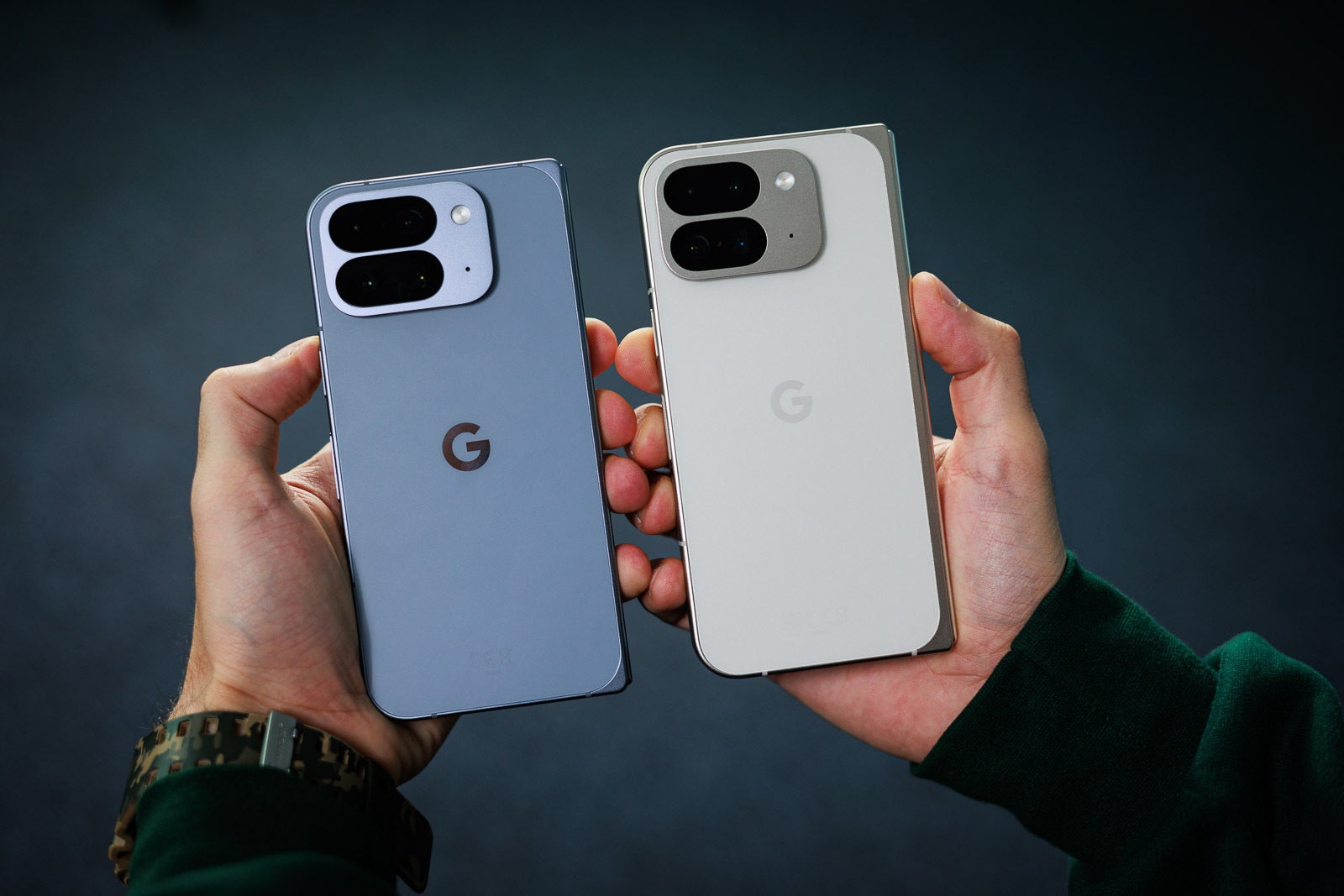
Similar design language (Image by PhoneArena)
There are no major changes between the Pixel 10 Pro Fold and the Pixel 9 Pro Fold.
From a stylistic standpoint, the two devices are identical, with the same more rectangular aspect ratio that gives you a large external screen and a major internal display. The large, oversized camera island at the rear is still here.
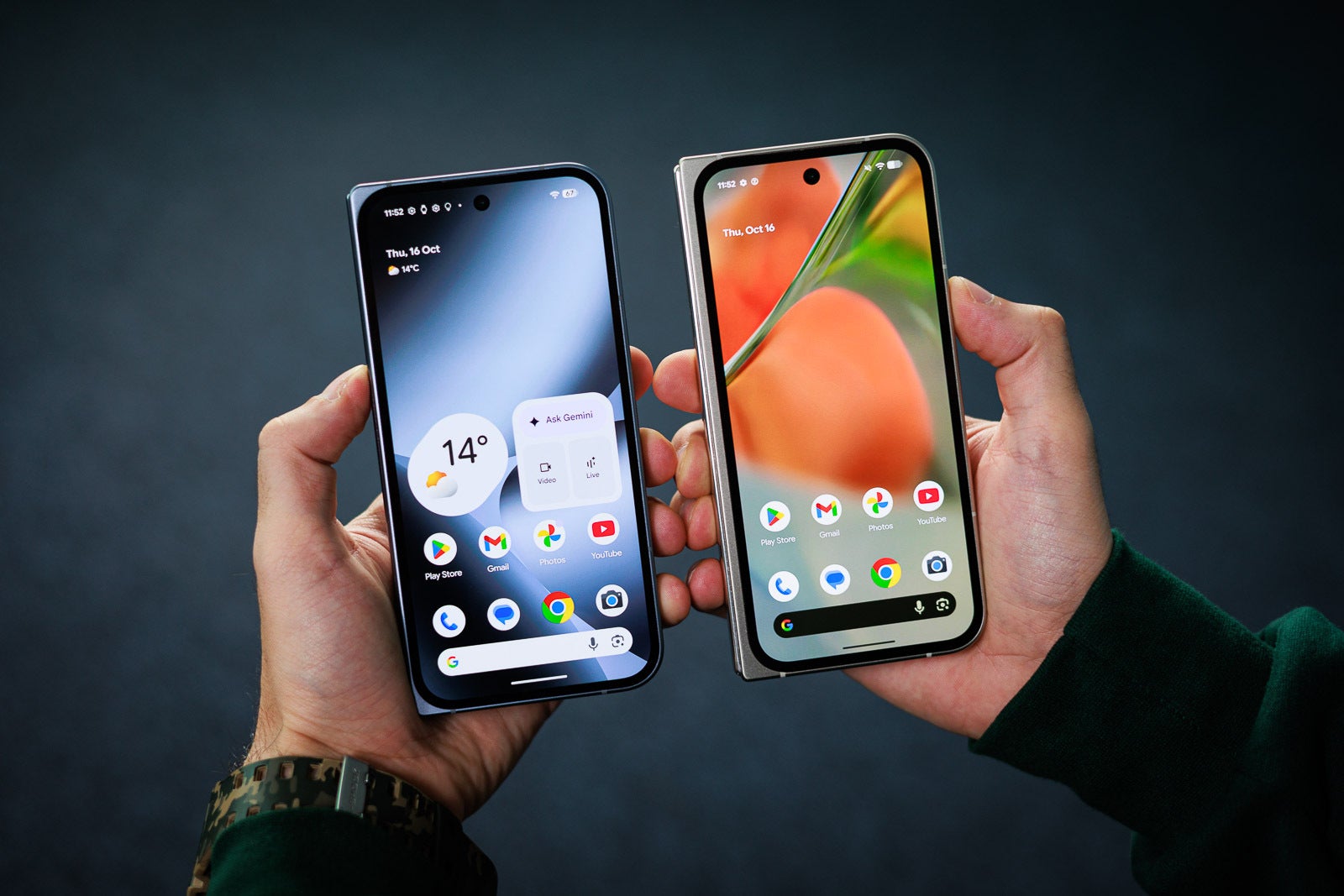
Image by PhoneArena
The frame is a multi-alloy steel one, with an aerospace-grade aluminum alloy cover protecting the innards on the Pixel 10 Pro Fold. There's also Gorilla Glass Victus 2 protecting the external screen and the rear of the device.
The improved hinge has allowed Google to adorn the Pixel 10 Pro Fold with an IP68 water and dust resistance, which is a first on a foldable phone. Even the Galaxy Z Fold 7 only supports IP48 water and dust resistance.
In terms of size, a surprising development has taken place, as the new Pixel 10 Pro Fold is slightly thicker than the Pixel 9 Pro Fold. The new phone is 10.8 mm thick when folded and 5.2 mm thick when unfolded, whereas the Pixel 9 Pro Fold was 10.5 mm folded and 5.1 mm unfolded. The difference might be difficult to notice in real life, but it's there.
There is also a one-gram difference between the two devices, but it's merely marginal.
| Pixel 10 Pro Fold | Pixel 9 Pro Fold |
|---|---|
| Dimensions 155.2 x 76.3 mm folded 155.2 x 150.4 mm unfolded | Dimensions 155.2 x 77.1 mm folded 155.2 x 150.2 mm unfolded |
| Thickness 5.2 mm unfolded 10.8 mm folded | Thickness 5.1 mm unfolded 10.5 mm folded |
| Weight 258 gr | Weight 257 gr |
In terms of colors, Google has spiced things up with two new colors. There's Moonstone and Jade, whereas the old device is available in Obsidian and Porcelain. We applaud the more intriguing new color selection of the foldable, but it's not groundbreaking by any means.
Also read:
Display Differences
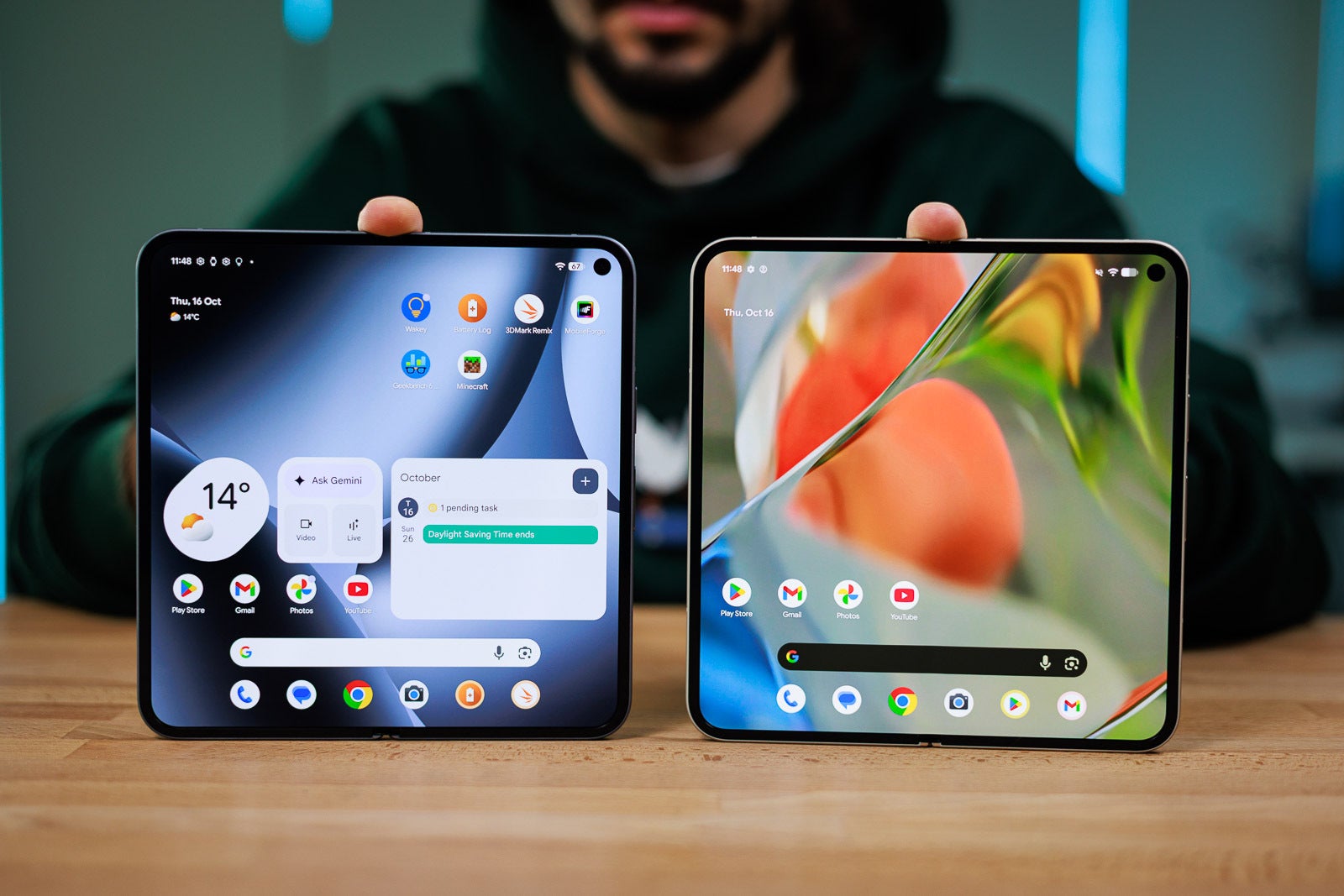
That's one exceptional display (Image by PhoneArena)
Thanks to ever-so-slimmer bezels up front, we get a 6.4-inch cover screen, slightly larger than the 6.3-inch one on the Pixel 9 Pro Fold.
The bigger change here is the peak brightness of the outer screen, which has been upped from 1,800 nits all the way up to 3,000 nits. The refresh rate remains 60-120Hz, which delivers a smooth experience, though not as smooth as the internal screen.
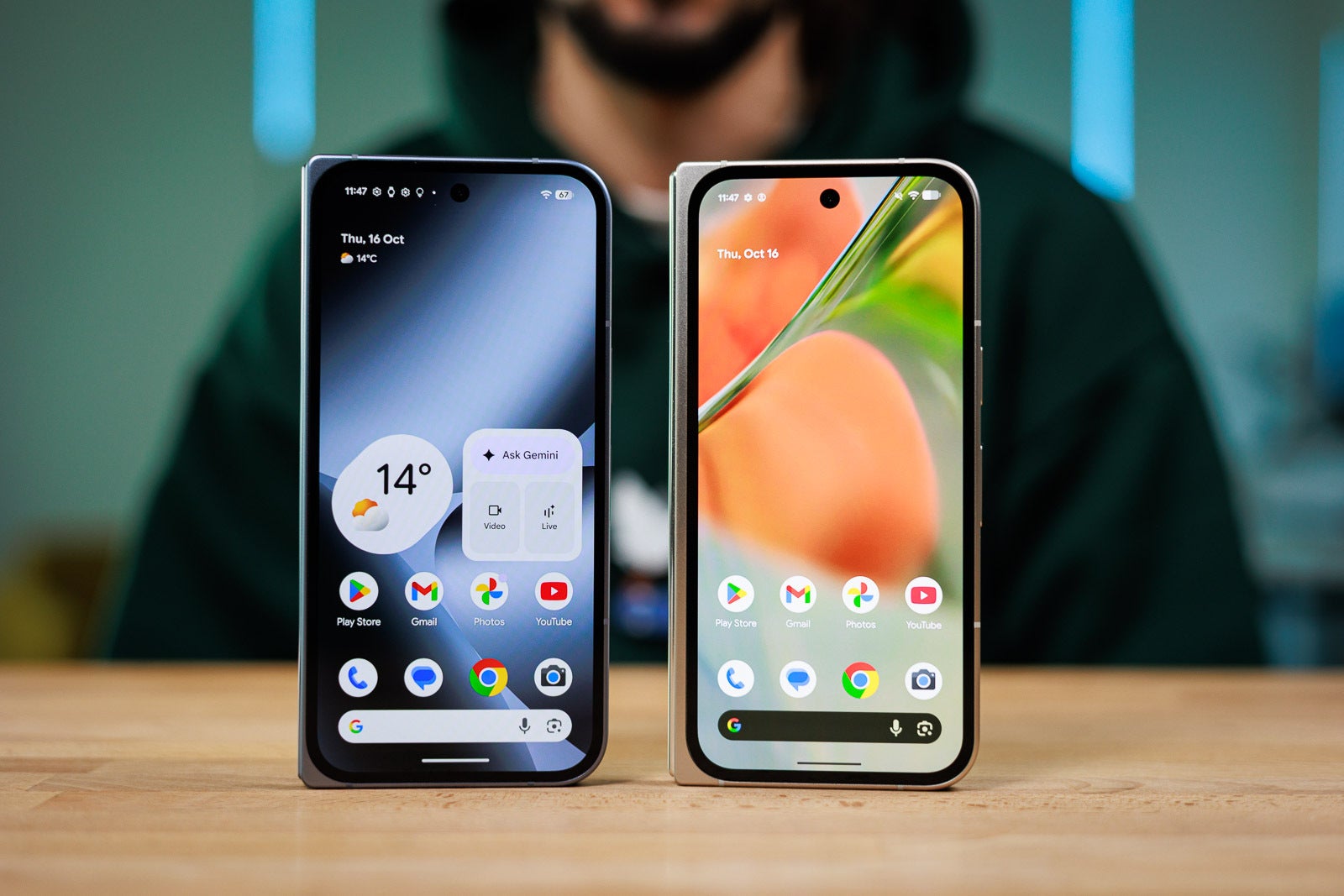
A slightly larger outer screen (Image by Google)
The same upgrade has hit the inner screen as well: Google has upped the peak brightness to 3,000 nits, up from 2,700 on the Pixel 9 Pro Fold. Otherwise, there are few other changes to the external display, which is still delightfully large at eight inches across, with a 1-120 Hz refresh rate.
| Pixel 10 Pro Fold | Pixel 9 Pro Fold |
|---|---|
| Cover screen 6.4-inch, 60-120Hz, 3000 nits | Cover screen 6.3-inch, 60-120hz, 1800 nits |
| Main screen 8.0-inch. 1-120Hz, 3000 nits | Main screen 8.0-inch, 1-120Hz, 2700 nits |
The Pixel 9 Pro Fold screen setup is mostly similar, with a 6.3-inch cover and 8-inch internal screens on board. Both are OLEDs with a 120 Hz refresh rate and high 2,700-nit peak brightness.
As per our in-house tests, it's the Pixel 10 Pro Fold that achieves the higher brightness, but it has marginally higher minimum brightness as well, which isn't ideal. Both devices have displays with similar screen properties, like color temperature and gamma.
Display Measurements:
Both phones feature punch holes on all displays for the selfie cameras. The fingerprint scanner remains embedded in the power button. Not cutting-edge tech, but it works reliably, so no problems here.
We have side-positioned fingerprint scanners on both devices, and they are pretty similar in terms of accuracy and ease of use. You sometimes have to tap the sensor twice to ensure that it gets read correctly. In eight out of ten tries, your fingerprint will be read correctly, though.
Performance and Software
Google Tensor G5 reporting for duty

The Tensor is still a humble performer (Image by PhoneArena)
The Pixel 10 series will use the Tensor G5 chipset, and it potentially marks a deep paradigm shift for Google. Up until now, Google's Tensor chips were manufactured by Samsung and utilized many aspects of the latter's Exynos line of chips, which weren't exactly exceptional when it comes to performance.
The Tensor G5 is a fully custom chip built by TSMC's on the latter's latest 3nm process, which means one thing and one thing only: potentially higher performance, better efficiency, and perfect compliance with Google's software requirements.
| Google Pixel 10 Pro Fold | Google Pixel 9 Pro Fold |
|---|---|
| Chip Google Tensor G5 | Chip Google Tensor G4 |
| Process 3nm | Process 4nm |
| RAM, Storage 16/256GB 16/512GB 16/1TB LPDDR5 RAM UFS 3.1 storage | RAM, Storage 16/256GB 16/512GB LPDDR5 RAM UFS 3.1 storage |
In terms of memory and storage, the Pixel 10 Pro Fold features 16GB of RAM for great on-device AI processing and multitasking. The phone comes with 256GB, 512GB, and 1TB storage variants. Meanwhile, the Pixel 9 Pro Fold came with the 4nm Tensor G4, with 16GB of RAM, but was only available with 256GB and 512GB. Less impressive, but still perfectly viable for years to come.
In synthetic benchmarks, however, the newer chip has noticeably better performance. This can be easily seen in both the single-core and the multi-core Geekbench 6 tests, where the newer foldable delivers better performance.
However, in terms of graphics performance, the newer Tensor isn't that much faster than its predecessor. The peak performance is up by a few hundred points, but the sustained performance is pretty similar on both phones. Gaming on the newer Pixel 10 Pro Fold makes the phone get really hot really fast, and the battery life also tanks, so this one isn't a recommended choice for mobile gamers.
Both devices run Android 16 currently and will be supported for seven years: that's 2031 for the older device and 2032 for the new Pixel. The Material 3 Expressive redesign is one of the major new changes with Android 16, but the Pixel has other novelties in tow.
One promising new feature arriving with the Pixel 10 Pro XL and utilizing the latest in Google AI technology is called Magic Cue. This is a proactive system that will bootstrap your data and unique usage patterns to suggest relevant pieces of information when possible.
For example, if someone messages you about a lunch reservation, Magic Cue will scour your Gmail for reservation confirmation emails and automatically recommend a relevant answer right there in the thread, acting as your virtual butler agent of sorts.
Camera
Like two peas in a pod

Pretty much no significant changes (Image by PhoneArena)
Well, the Pixel 10 Pro Fold is mostly similar to the Pixel 9 Pro Fold, which is completely logical given that the hardware is identical. The older Pixel 9 Pro Fold even ranks slightly higher in our camera test, which is most likely due to the optimization it has received down the road.
PhoneArena Camera Score:
The Pixel 10 Pro Fold and the Pixel 9 Pro Fold feature the same camera setups, with the only differences likely stemming from any software and image-processing changes.
The main camera remains a 48MP one, although Google says it's a new one. The 10.5MP ultrawide and the 10.8MP telephoto with 5X zoom remain similar between the two phones. The maximum zoom here is 20X, so hardly as impressive as the 100X Pro Res Zoom on the Pixel 10 Pro/Pro XL. There are also dual 10MP selfie cameras, one on the external screen and another one on the inside.
| Pixel 10 Pro Fold | Pixel 9 Pro Fold |
|---|---|
| Main camera 48MP | Main camera 48MP |
| Ultrawide 10.5MP | Ultrawide 10.5MP |
| Telephoto 10.8MP 5X | Telephoto 10.8MP 5X |
| Cover selfie 10MP | Cover selfie 10MP |
| Internal selfie 10MP | Internal selfie 10MP |
Now, Pixel phones have always had spectacular software optimization, capable of vastly improving the image quality from seemingly similar hardware, so we are not too worried about the potential quality here. Besides, foldables aren't usually sought after for their cameras, which usually take the back seat.
Main camera
Zoom Quality
Ultrawide camera
Selfie camera
Video Quality

Video quality is pretty much identical with the Pixel 9 Pro Fold, but isn't anything to write home about. The Pixel 9 Pro Fold shows us a bit warmer colors, but the stabilization on the Pixel 10 Pro Fold is slightly better. Anyway, you shouldn't pick a Pixel if you shoot a lot of video or vlogs, you'll quickly be underwhelmed.
Battery Life and Charging
Some important improvements
The Pixel 10 Pro Fold scores a slightly larger 5,015 mAh battery, an important improvement over the 4,650 mAh that was found inside the Pixel 9 Pro Fold. However, this has only marginally improved the battery life, and you will feel the difference only if you never game on your phone.
As per our test, the Pixel 10 Pro Fold performs slightly better in our web browsing test and considerably better in the video streaming one. So, if you stick to regular usage and some media streaming, you'd see a slight uptick in the battery life versus the older Pixel 9 Pro Fold.
However, if you're invested in mobile gaming, then you'd be sad to learn that the GPU in the new Pixel 10 series and the Pixel 10 Pro Fold in particular isn't very efficient, which is why the Pixel 9 Pro Fold has nearly triple the battery life in our 3D gaming test.
PhoneArena Battery and Charging Test Results:
Google has improved the charging speeds, though. We get 30W wired and 15W Qi2 wireless charging, a notable improvement over the 21W wired and 8W wireless charge on the Pixel 9 Pro Fold. Yet, both phones charge in a bit over an hour and a half.
The Pixel 10 Pro Fold features Google's answer to Apple's MagSafe, called Pixelsnap. The magnets are embedded right into the back of the phone so that you can attach Pixelsnap accessories to the rear. MagSafe accessories are also supported.
No such feature on the Pixel 9 Pro Fold, so you will be missing out.
Specs Comparison
Here's how the Pixel 10 Pro Fold vs Pixel Fold specs compare:
| Pixel 10 Pro Fold | Pixel 9 Pro Fold |
|---|---|
| Size, weight 155.2 x 150.4 x 5.2mm (unfolded) 155.2 x 76.3 x 10.8 mm (folded) 258 gr | Size, weight 155.2 x 150.2 x 5.1 mm (unfolded) 155.2 x 77.1 x 10.5 mm (folded) 257 gr |
| Screens 8.0" OLED, 120Hz, 3000 nits 6.4" OLED, 120Hz, 3000 nits | Screens 8.0" OLED, 120Hz, 2700 nits 6.3" OLED, 120Hz, 1800 nits |
| Processor Tensor G5 3nm | Processor Tensor G4 4nm |
| Versions: 16GB/256GB 16GB/512GB 16GB/1TB LPDDR5 | Versions 16GB/256GB 16GB/512GB LPDDR5 |
| Cameras: 48MP main 10.5MP ultra 10.8MP 5X zoom 10MP front 10MP internal front | Cameras: 48MP main 10.5MP ultra 10.8MP 5X zoom 10MP front 10MP internal front |
| Battery: 5,015 mAh | Battery: 4.650 mAh |
| Charging: USB-C 30W wired 15W wireless Pixelsnap | Charging USB-C 21W wired 7.5W wireless |
Summary

Which one? It's the older phone this time around (Image by PhoneArena)
Overall, it doesn't feel that Pixel 9 Pro Fold users should feel the FOMO on the Pixel 10 Pro Fold.
Sure, it has some nice-to-have quality-of-life improvements like a full IP68 on a foldable and the cool new Pixelsnap system that lets you use any MagSafe accessory on your Pixel, but overall, it doesn't improve some core aspects, like the battery life and the camera image quality.
While foldables are rarely bought for their camera prowess, it's great to have a well-performing one, and the Pixel 10 Pro Fold is just fine. The battery life is majorly dragged down by the gaming performance, which is bad on the Pixel 10 Pro Fold.
Most of the unique software features that arrived on the Pixel 10 Pro Fold, like Camera Coach, might eventually make it to the older device, so software shouldn't be a reason to uprgade either.
The Pixel 9 Pro Fold is basically the same phone, just as capable and adequate, so you can save some money by not upgrading to the Pixel 10 Pro Fold.
Follow us on Google News

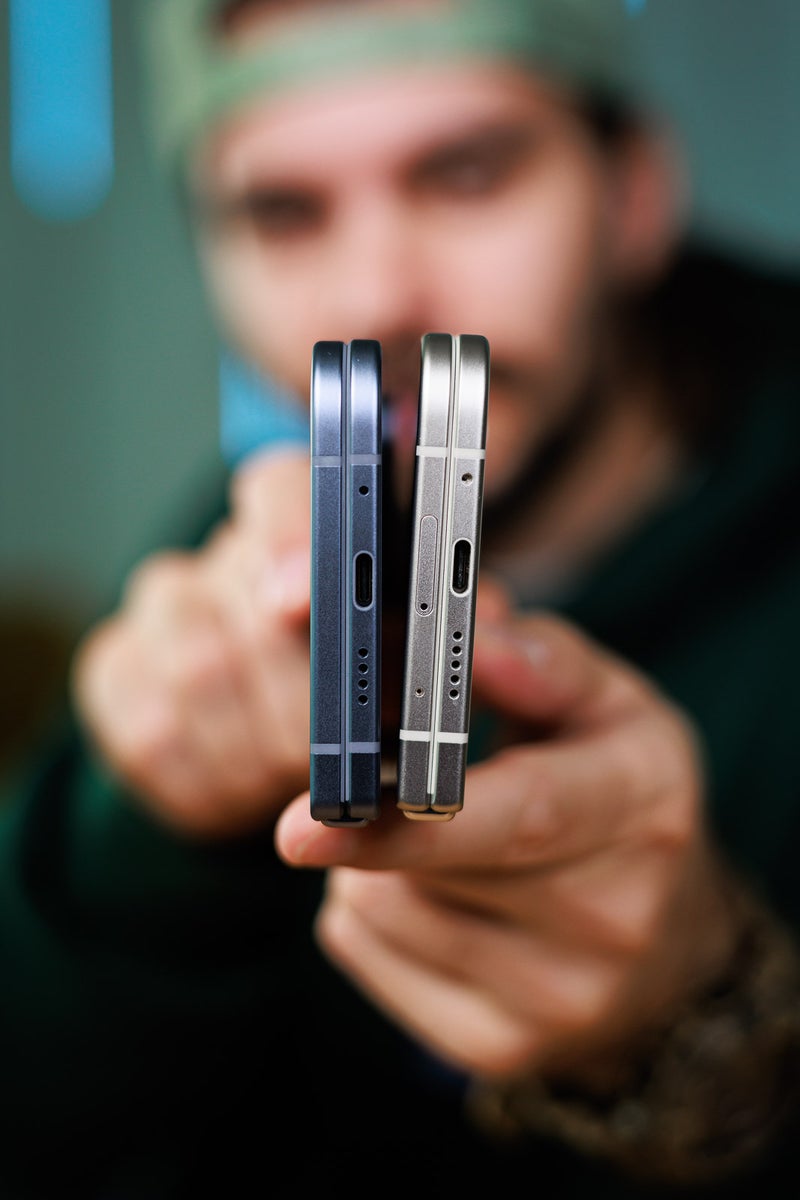
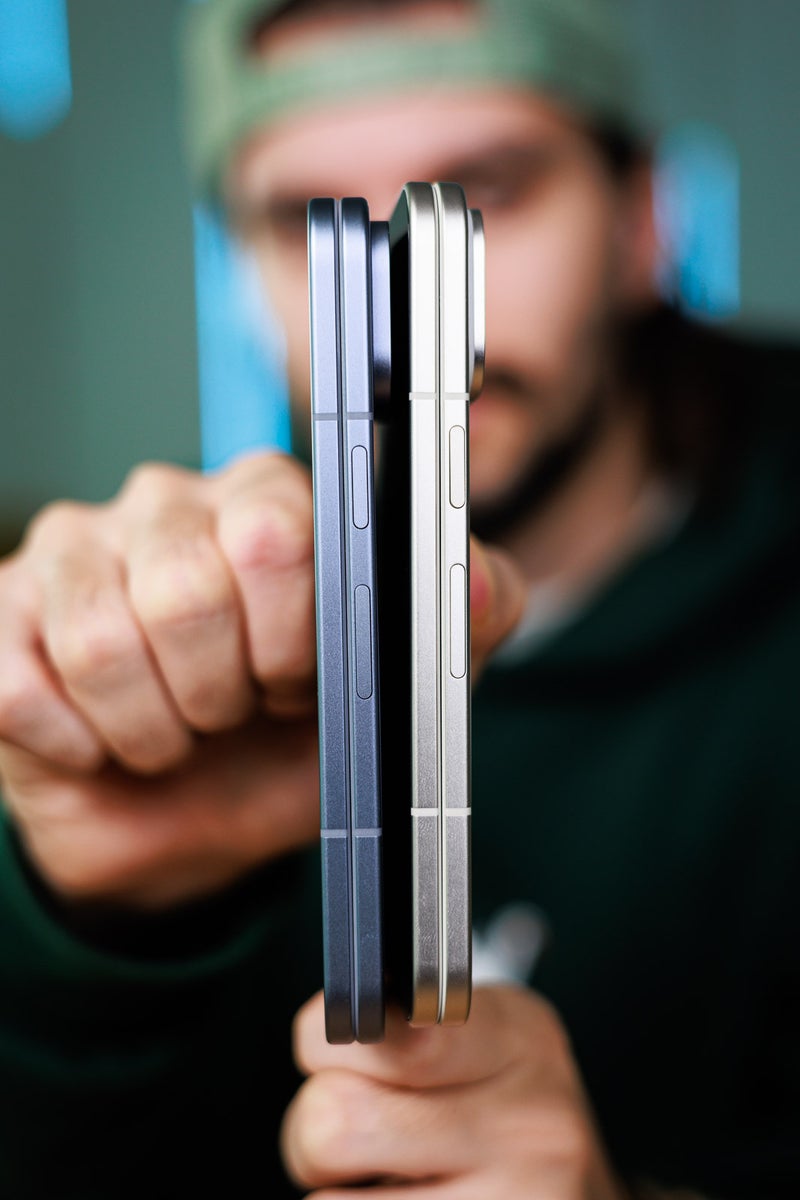
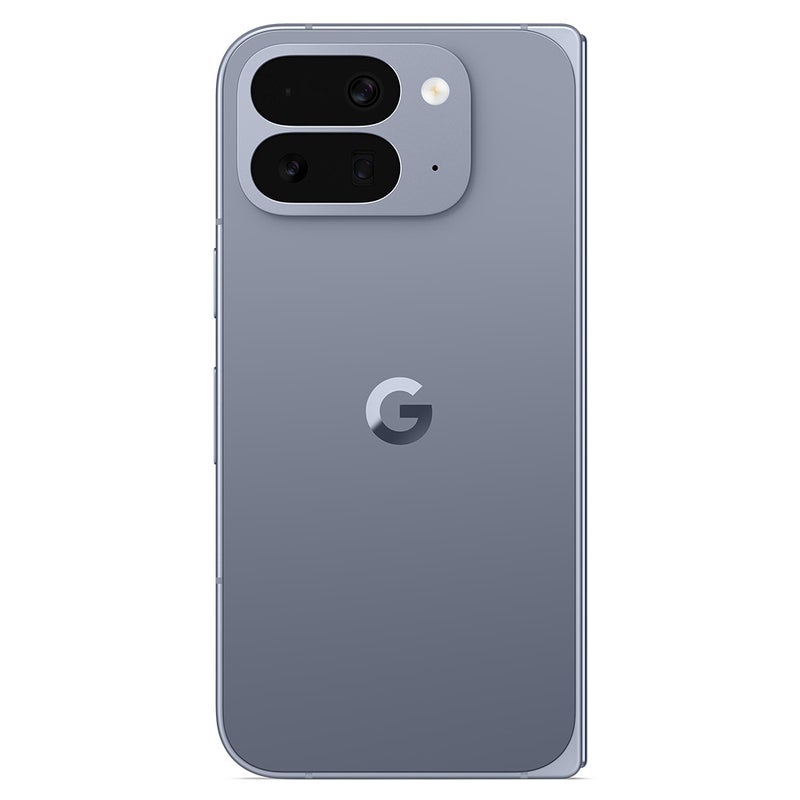
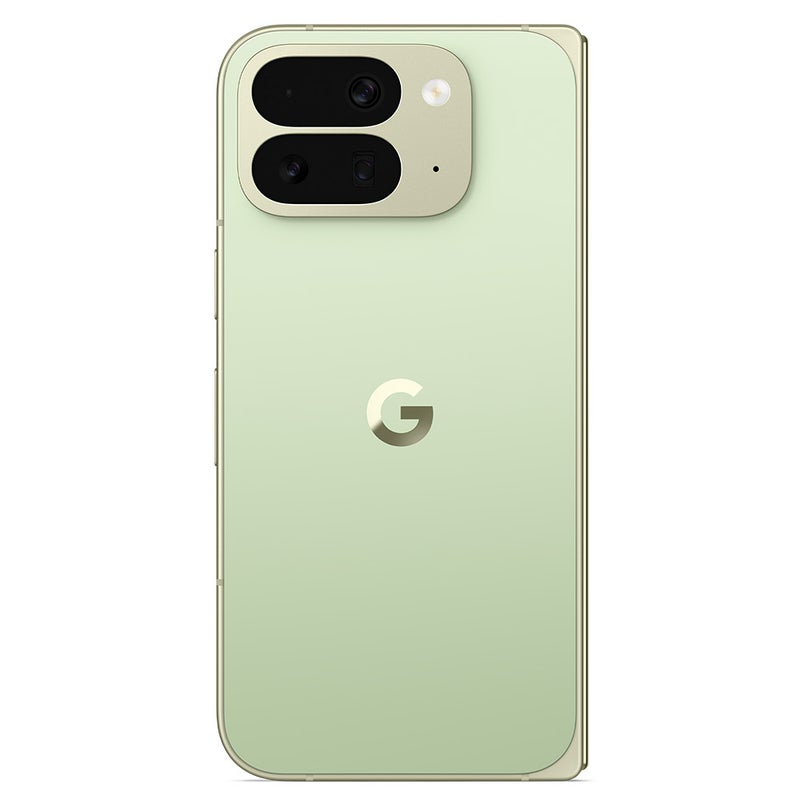
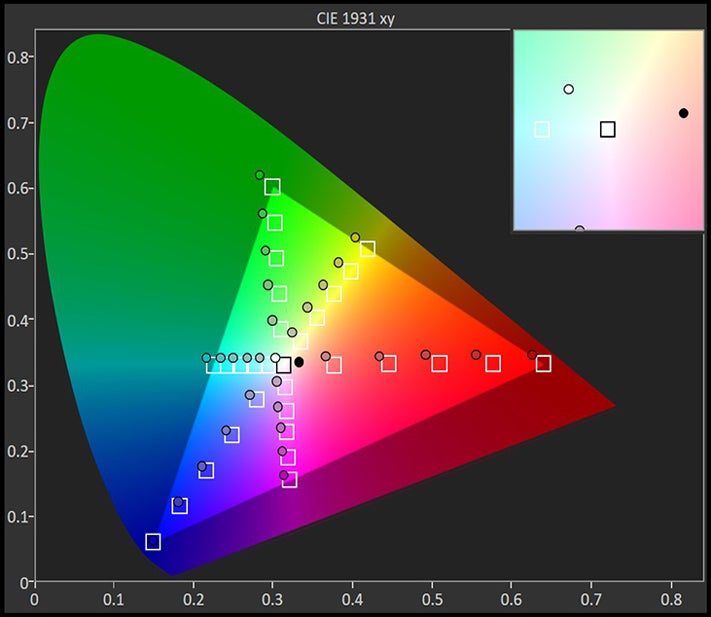





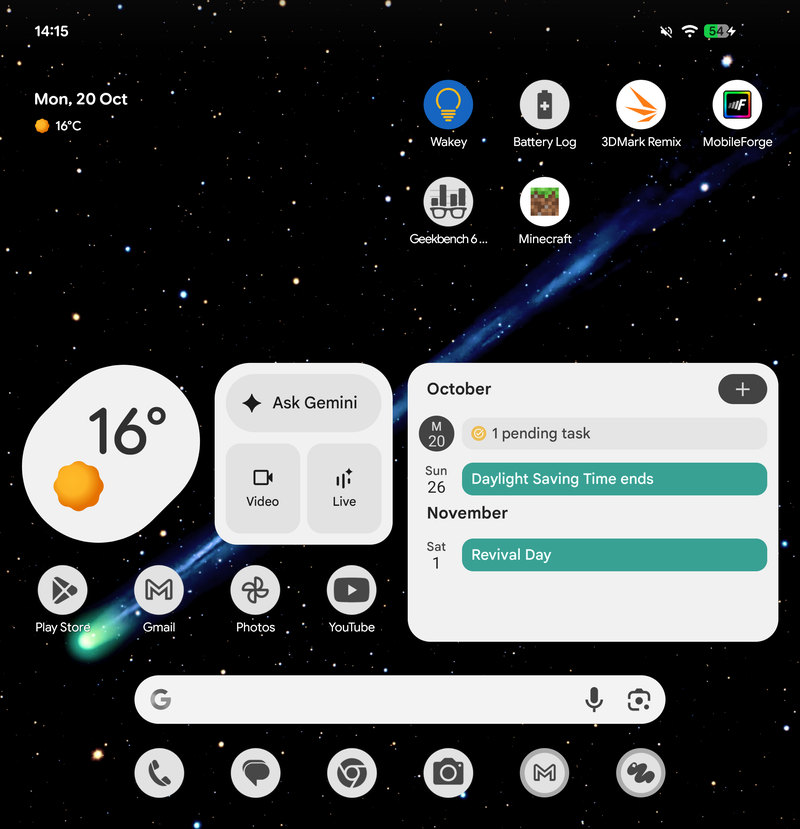
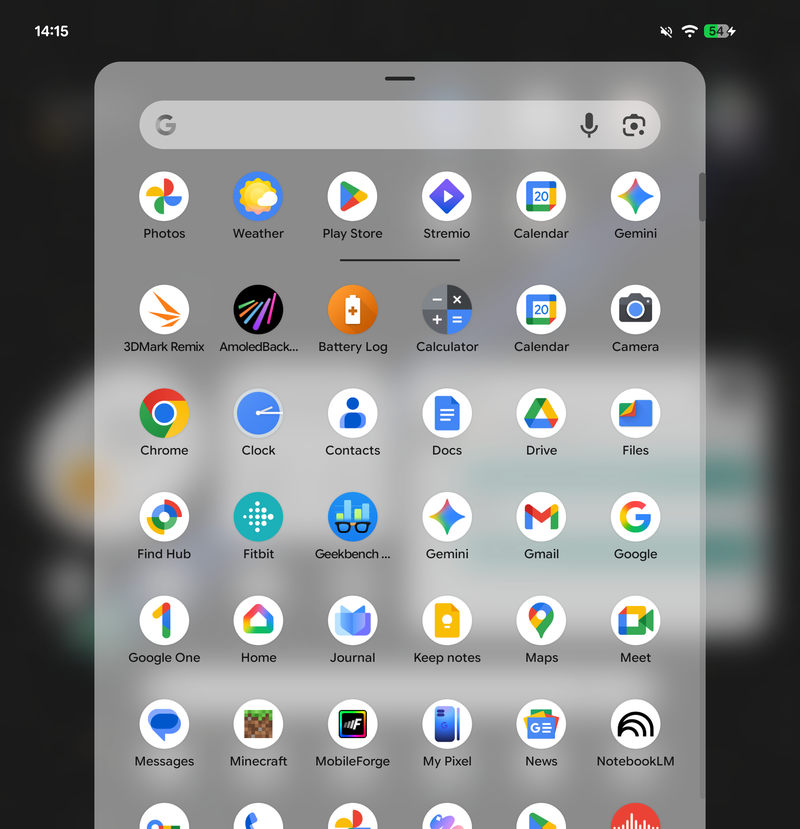
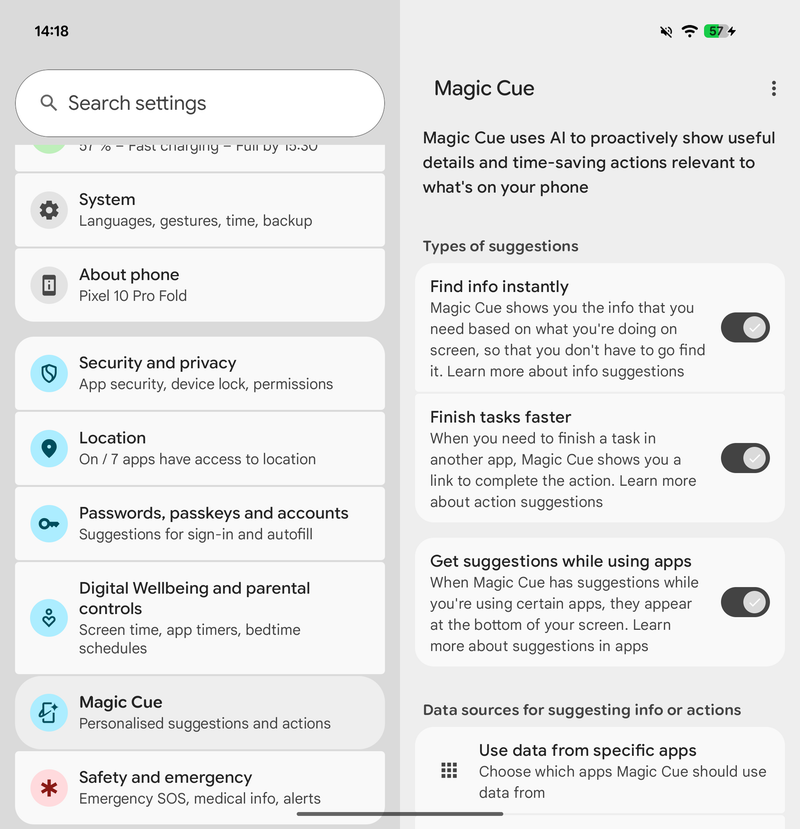
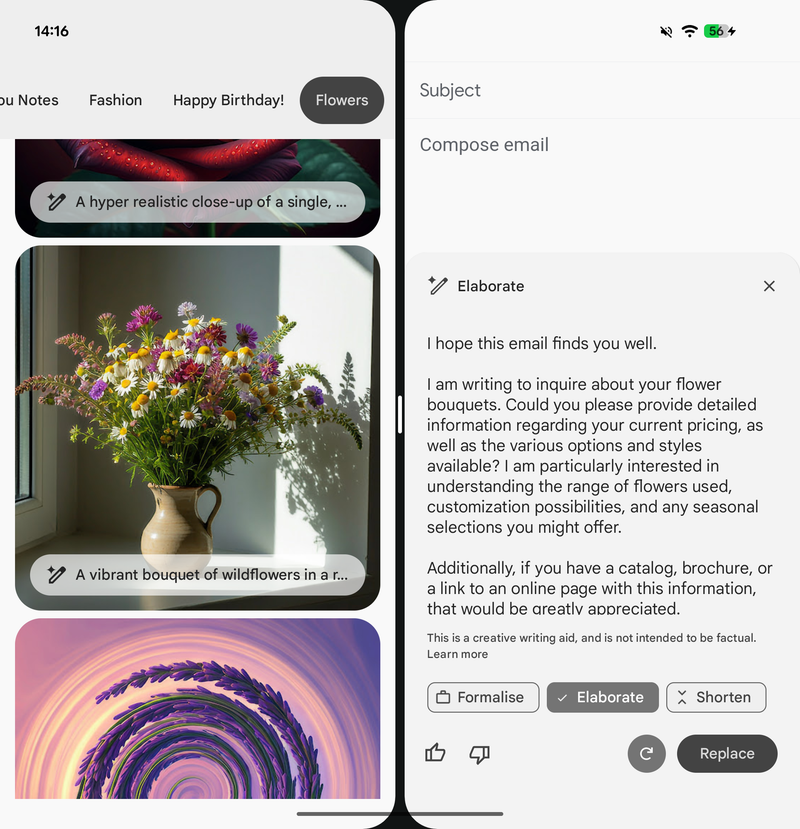
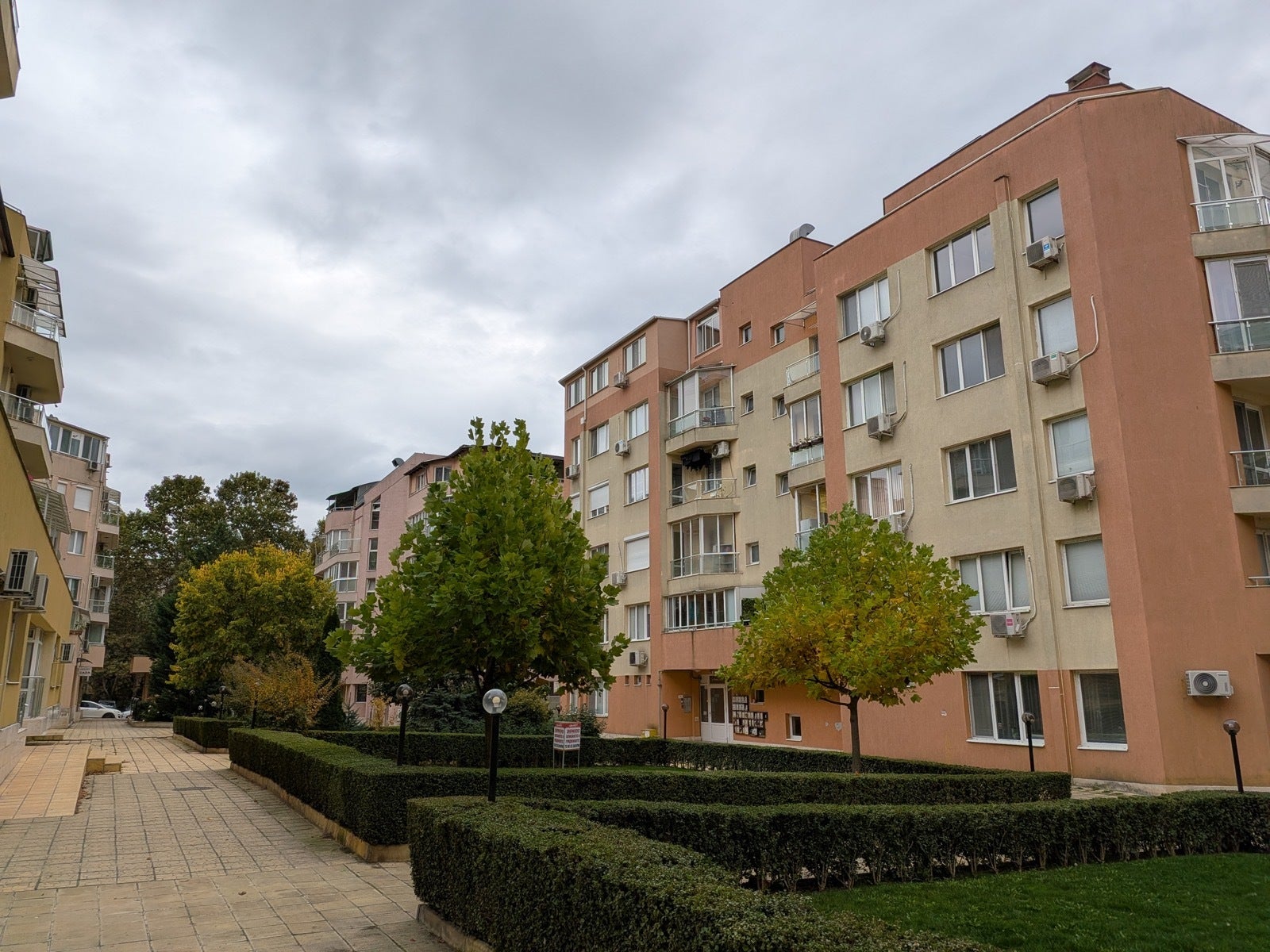
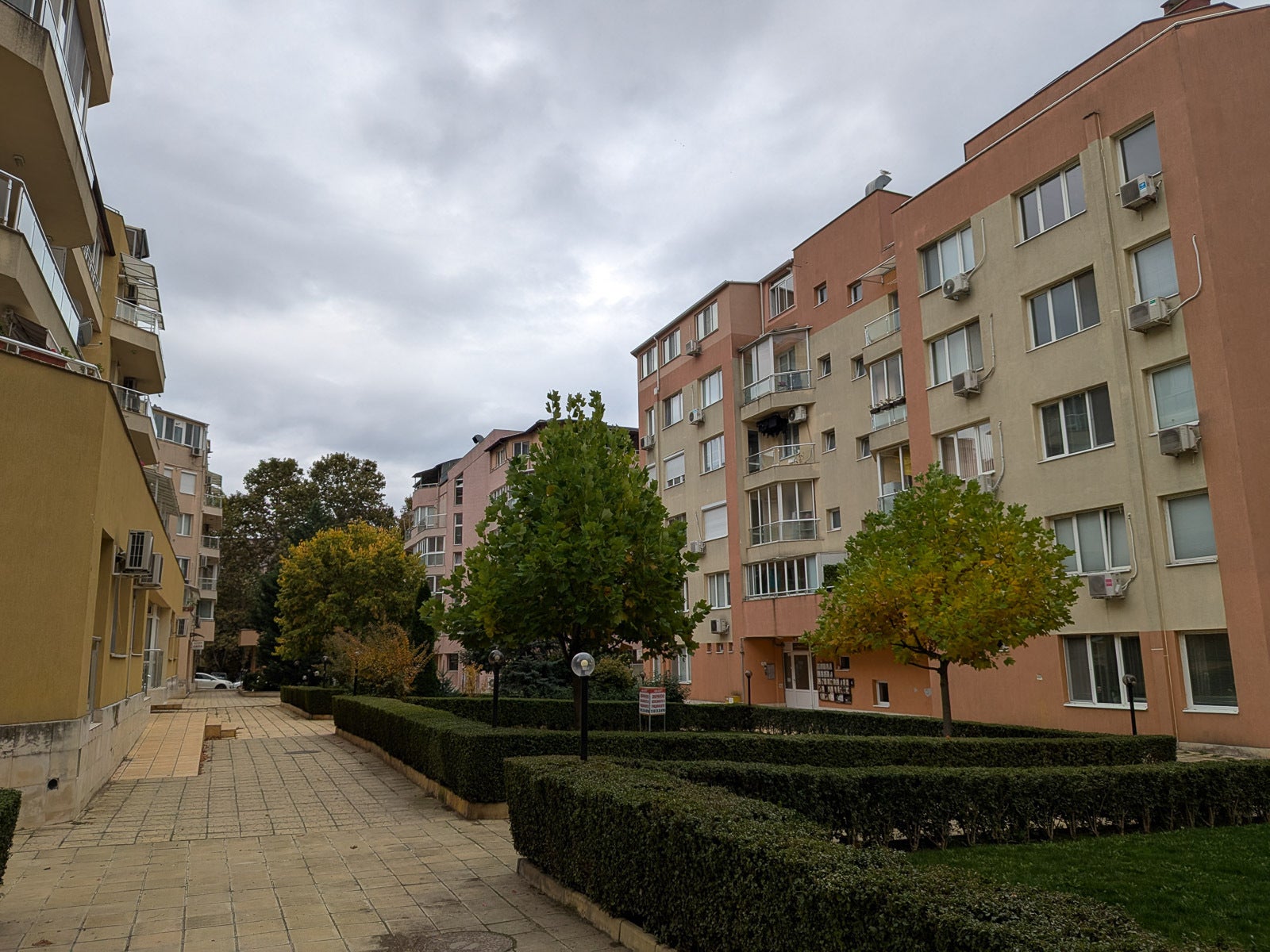





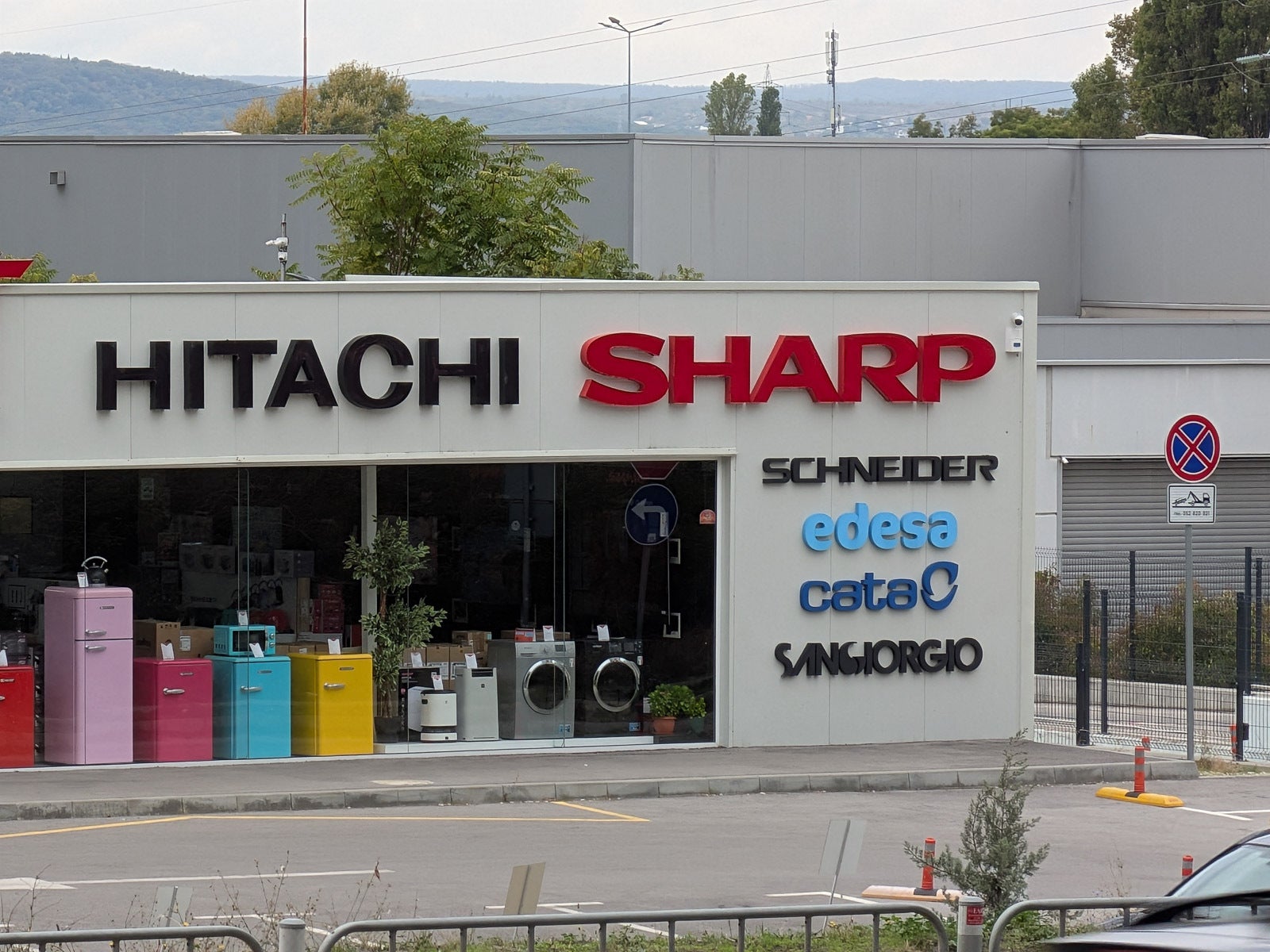
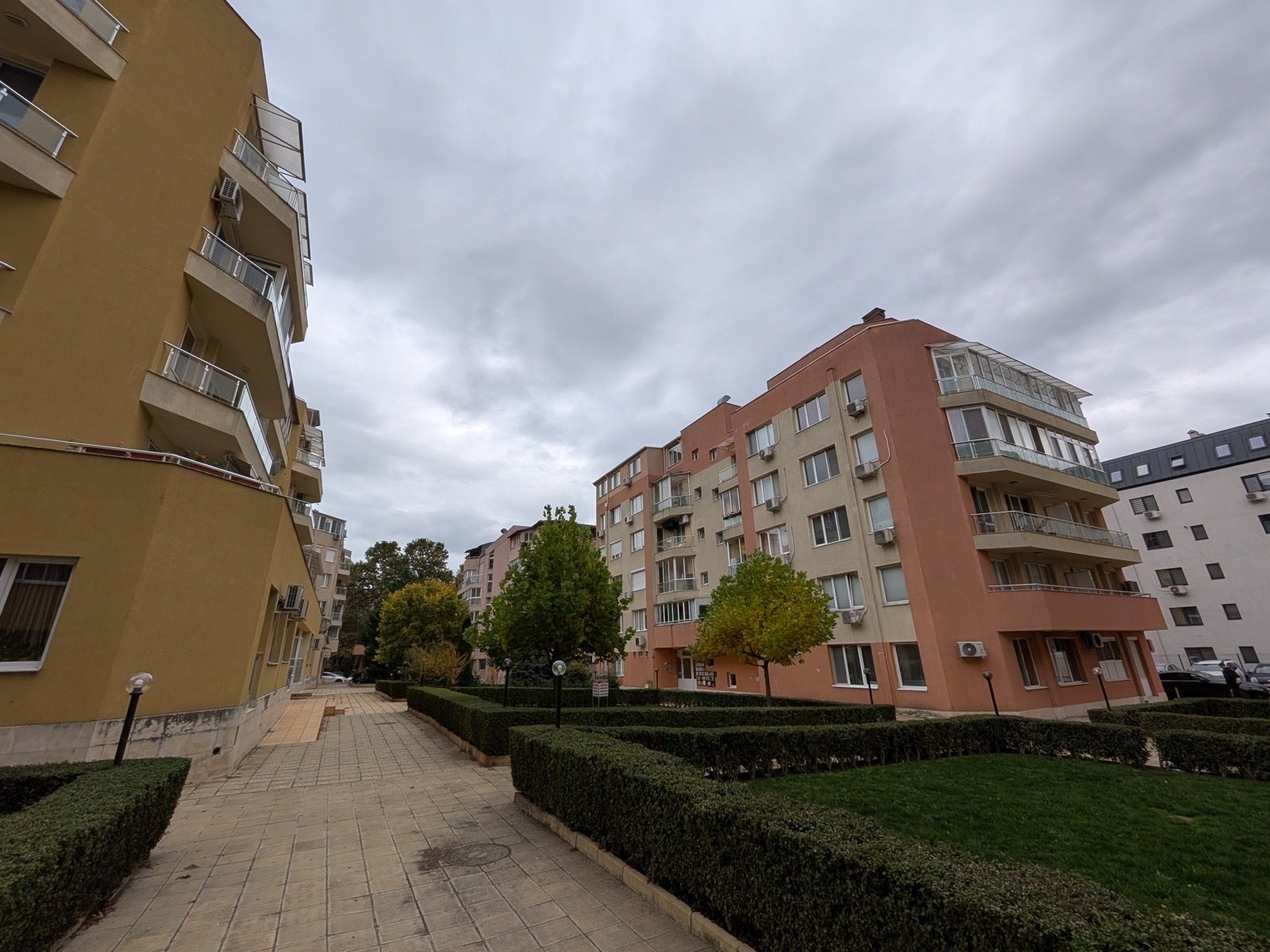
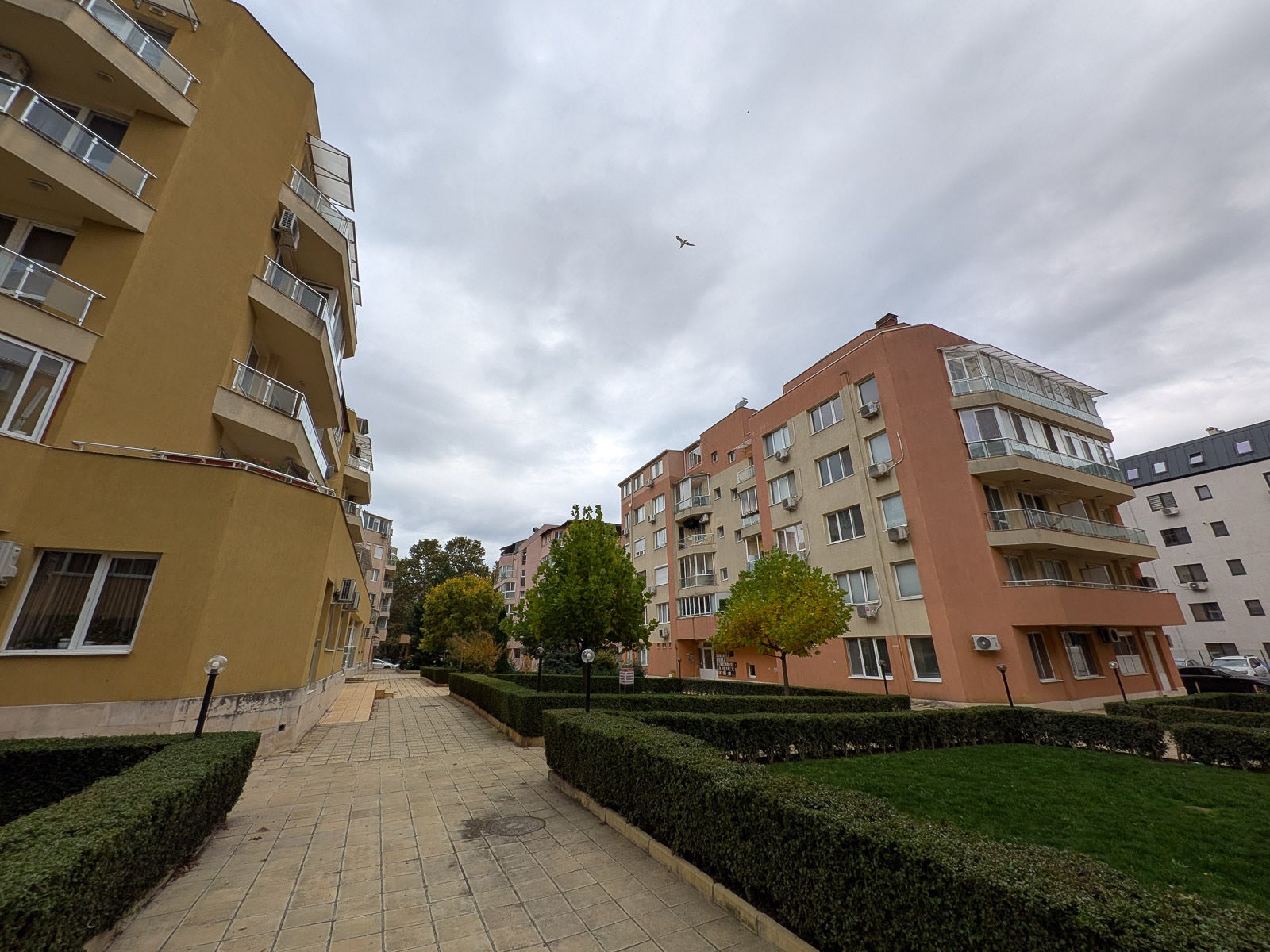















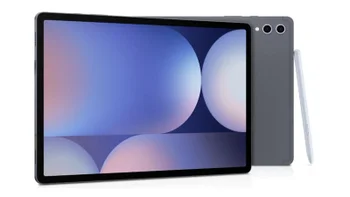

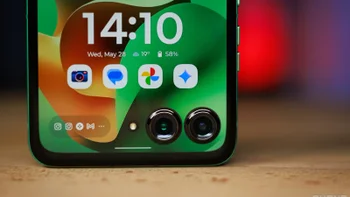
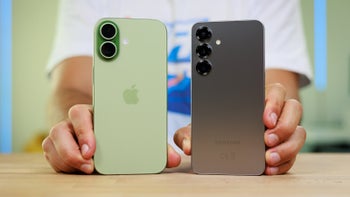
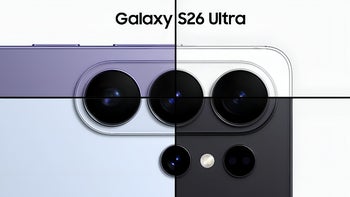
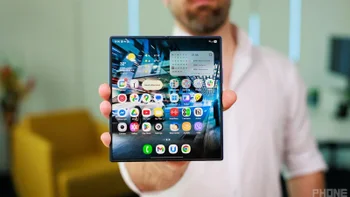
Things that are NOT allowed:
To help keep our community safe and free from spam, we apply temporary limits to newly created accounts: